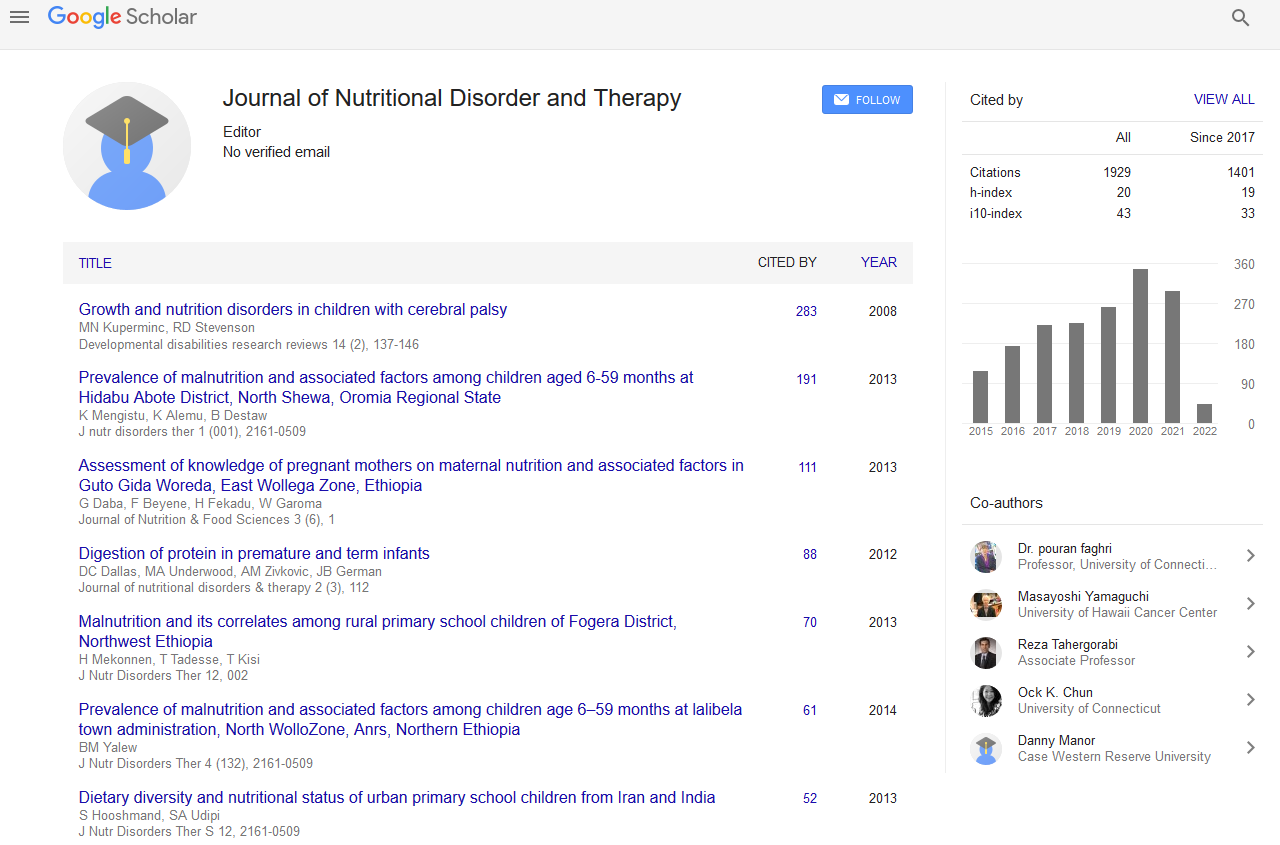Indexed In
- Open J Gate
- Genamics JournalSeek
- Academic Keys
- JournalTOCs
- Ulrich's Periodicals Directory
- RefSeek
- Hamdard University
- EBSCO A-Z
- OCLC- WorldCat
- Publons
- Geneva Foundation for Medical Education and Research
- Euro Pub
Useful Links
Share This Page
Journal Flyer

Open Access Journals
- Agri and Aquaculture
- Biochemistry
- Bioinformatics & Systems Biology
- Business & Management
- Chemistry
- Clinical Sciences
- Engineering
- Food & Nutrition
- General Science
- Genetics & Molecular Biology
- Immunology & Microbiology
- Medical Sciences
- Neuroscience & Psychology
- Nursing & Health Care
- Pharmaceutical Sciences
Abstract
Level of Zinc, Retinol, Blood Macrophages, T- Lymphocytes and Immunoglobulin G in Children with Tuberculosis and Non Tuberculosis
Merryana Adriani, Yoanita Indra Kumala Dewi, Eva Inayatul Faiza and Bambang Wirjatmadi
Tuberculosis remains a major cause of morbidity and mortality in children in the world, but still lack of priority in overcomes them. Every year estimated 9 million new tuberculosis cases with 1 million of whom are children aged <15 years and 2 million of them died. Nutrients which are very influential on a child's immune system are fat, protein, vitamin A and zinc. The presence of zinc in the body greatly affects the immune function so it plays an important role in the prevention of infectious diseases, including tuberculosis. The purpose of this study is to determine differences in serum zinc levels, serum retinol levels, levels of blood macrophages, T-lymphocytes and IgG between children with tuberculosis with healthy children or non- tuberculosis.
This study is a comparative observational study with cross sectional study design. The sampling technique of this study was simple random sampling. This study was conducted at RSUD Sidoarjo with each 11 children in tuberculosis and non-tuberculosis group as a sample.
At the end of this study, it discovered that there are significant differences levels of zinc serum (p=0.003), retinol serum (p=0.018), blood macrophages (p=0.001), T-lymphocytes (p=0.001) and IgG (p=0.006) between tuberculosis and non-tuberculosis group. The levels of zinc, retinol and IgG on children with tuberculosis were lower than nontuberculosis children, but T-lymphocytes on children with tuberculosis were higher than non-tuberculosis children. It suggested for giving zinc and vitamin A regularly and appropriate dosing in children with tuberculosis where it is useful to improve the durability of the body and can improve the child's appetite.


